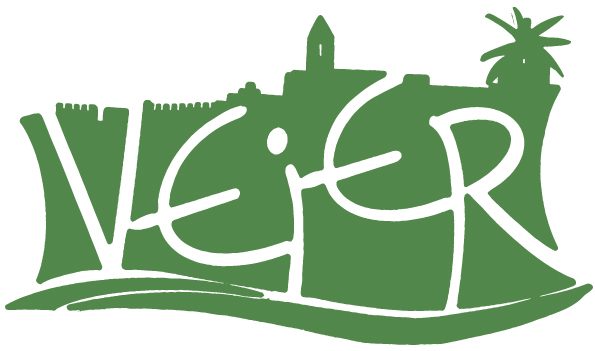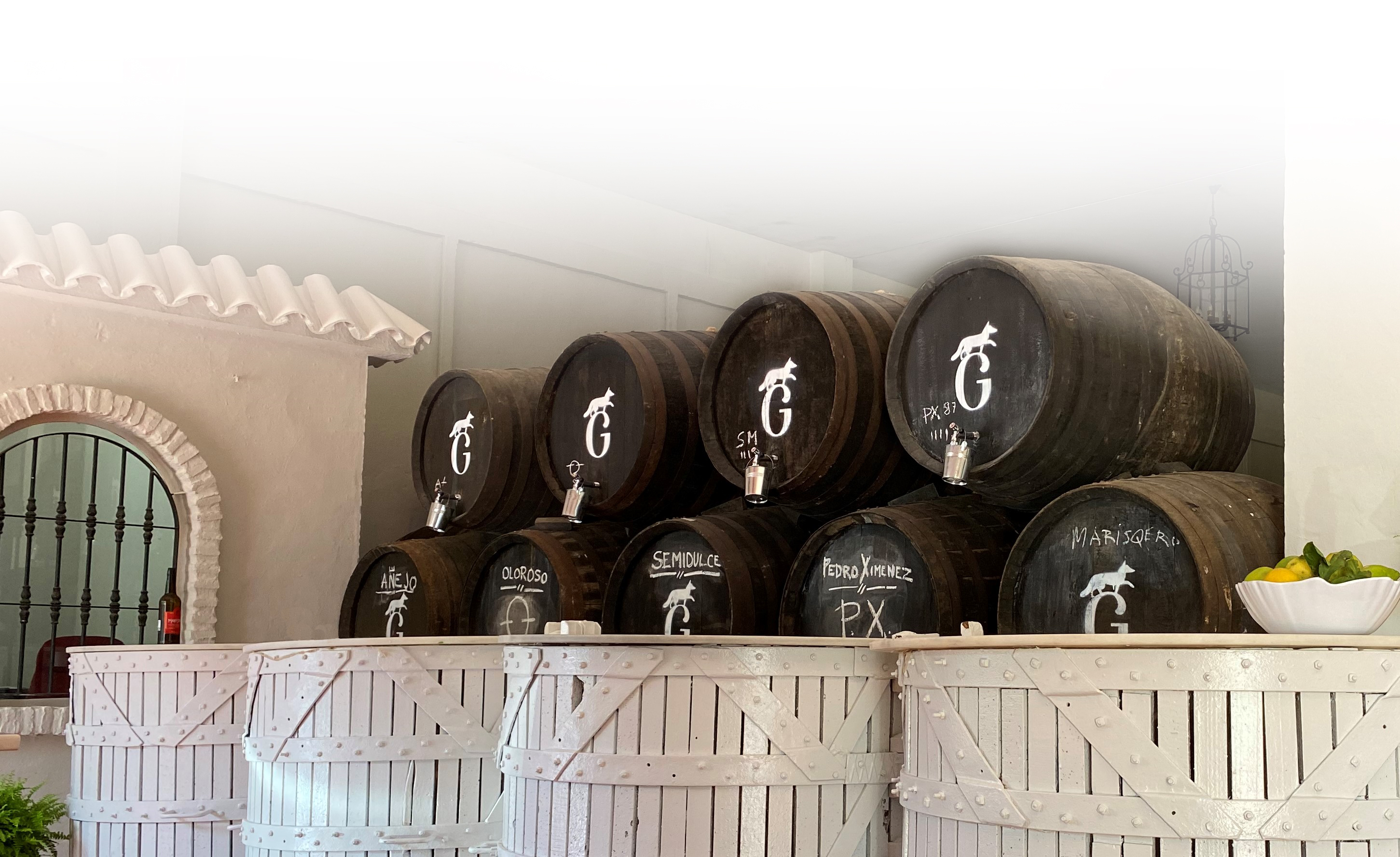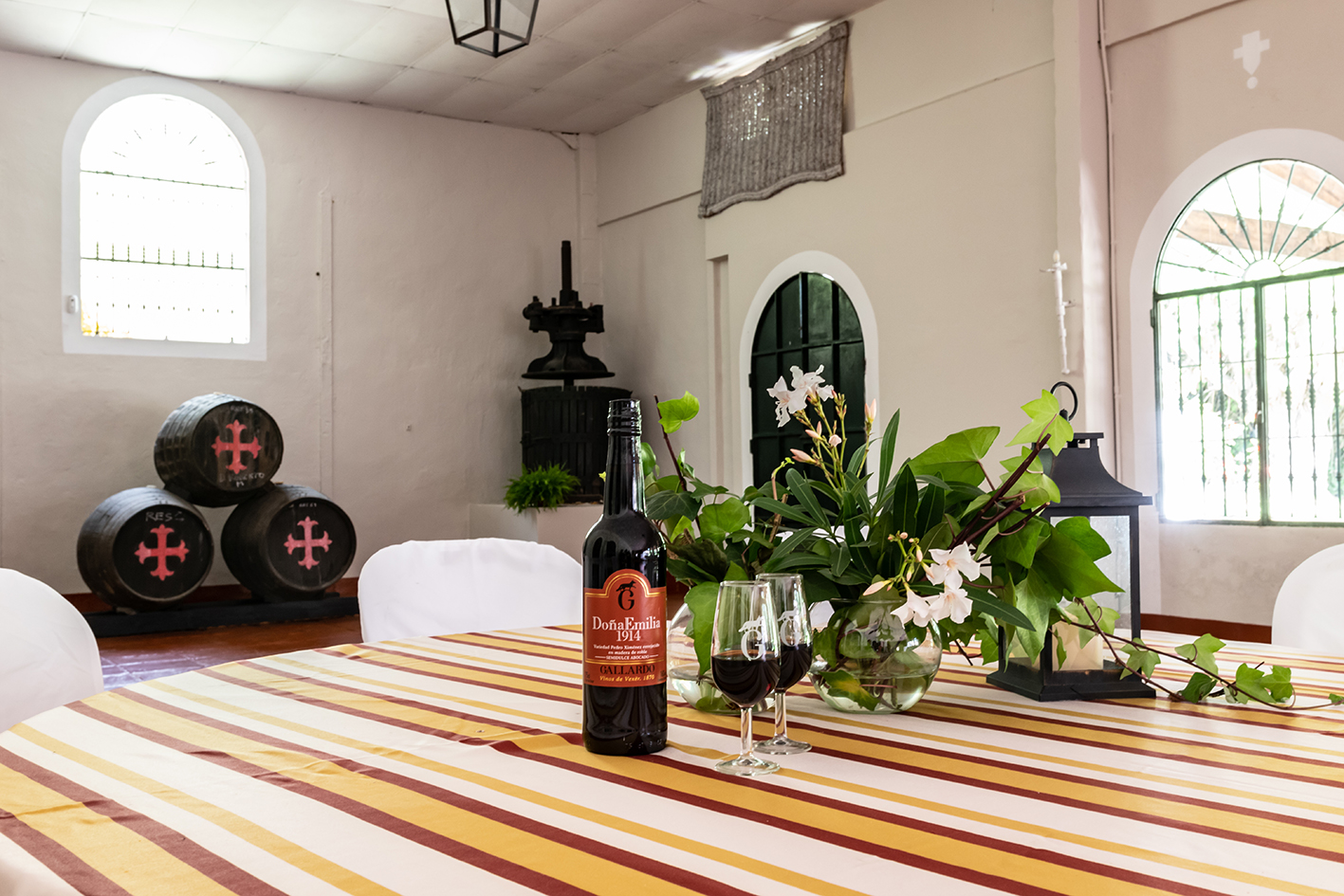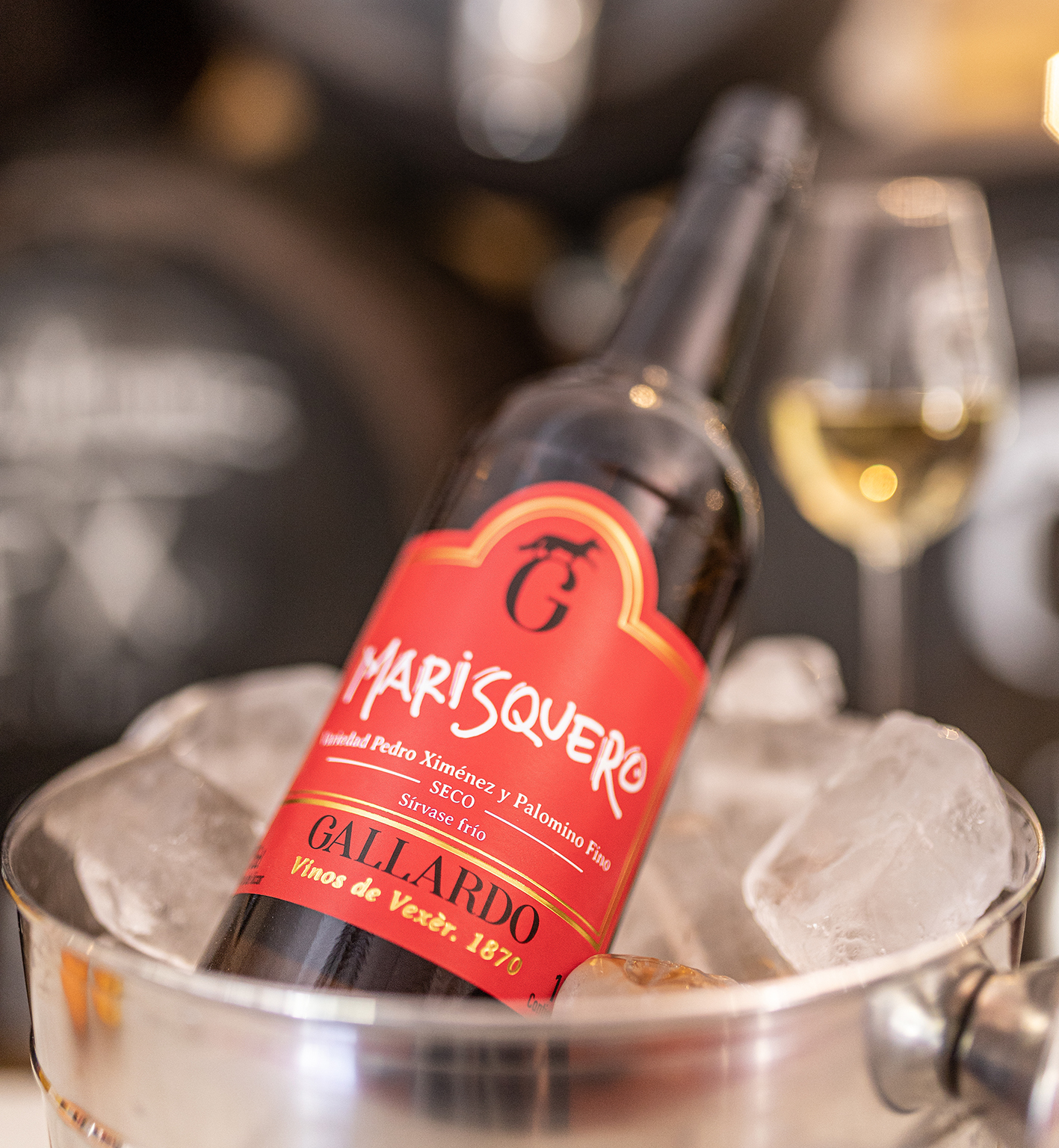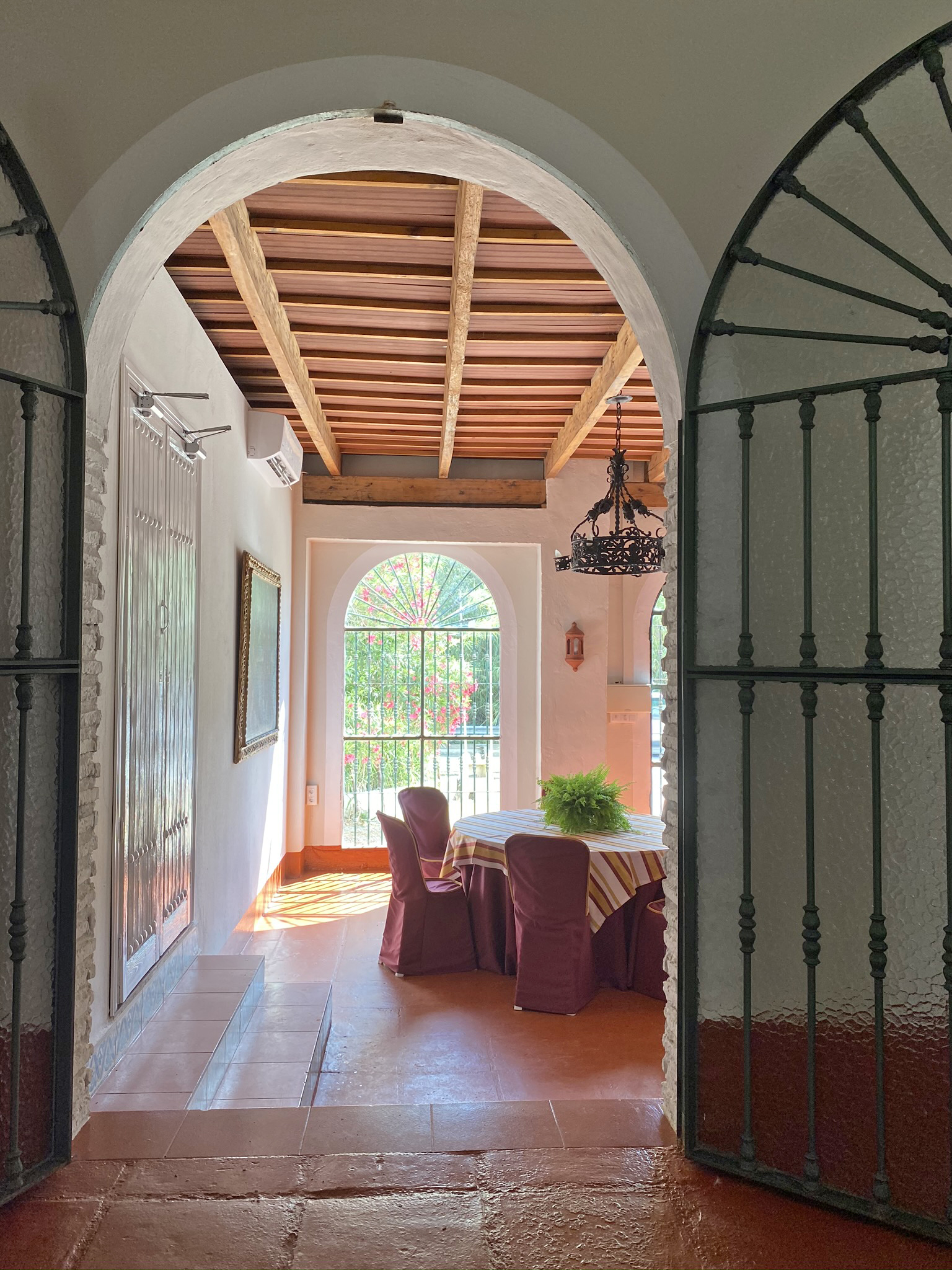BODEGAS GALLARDO, la bodega más antigua del municipio, sigue la tradición centenaria de la familia de elaborar y embotellar los mejores vinos de la zona.
Es desde Chiclana donde en 1987 Manuel Gallardo Romero, familia de bodegueros desde el siglo XlX, traslada su bodega y la ubica en Vejer, a orillas de el río Barbate, a pie de la colina de la Villa, en la zona conocida como La Barca de Vejer. Zona fresca y protegida de los vientos, puerto natural donde se comerciaba con vinos desde la más remota antigüedad.
El cultivo de la viña fue actividad importante durante siglos, por la insolación natural y la frescura de sus tierras, tan cerca del mar. Sus vinos, por su calidad, fueron llevados por todo el mundo desde los fenicios por el Mediterráneo hasta América, en el Nuevo Mundo, por los navegantes castellanos y andaluces.
El vino de Vexèr tuvo siempre fama de ser de muy buena calidad. En 1752, el Gran Señor de Andalucía, el Duque de Medina Sidonia, amante del vino y con innumerables viñedos y bodegas, le obsequia al Marqués de la Ensenada “un barril de vino de Vexèr”, como regalo exquisito y apreciado.
Hoy, el equipo de BODEGAS GALLARDO trabaja con el objetivo de mantener la tradición pensando en el futuro, ofreciendo nuevos productos que estén a la altura de lo que el mercado demanda.
Bodegas Gallardo is the oldest bodega (winery) in the municipality. It continues to use age-old, family methods of bottling and preparing the best wines in the region.
In 1987 Manuel Gallardo Romero, a member of a distinguished wine producing family based in Chiclana and dating back to the 19th Century, moved the bodega to Vejer.
The bodega is situated on the banks of the Barbate river, at the foot of the Villa Hill in an area known as the Barca of Vejer. This area is protected from the winds and forms a natural port. This is the location from where it commercialised wines including some extremely old varieties.
The cultivation of the vines has been an important activity throughout the centuries, partly due to the natural protection of the landscape and freshness of the climate given its close proximity to the sea. The high quality of the wines meant that they were transported all over the world: the Phoenicians took them across the Mediterranean and the Spanish to the Americas and the New World.
